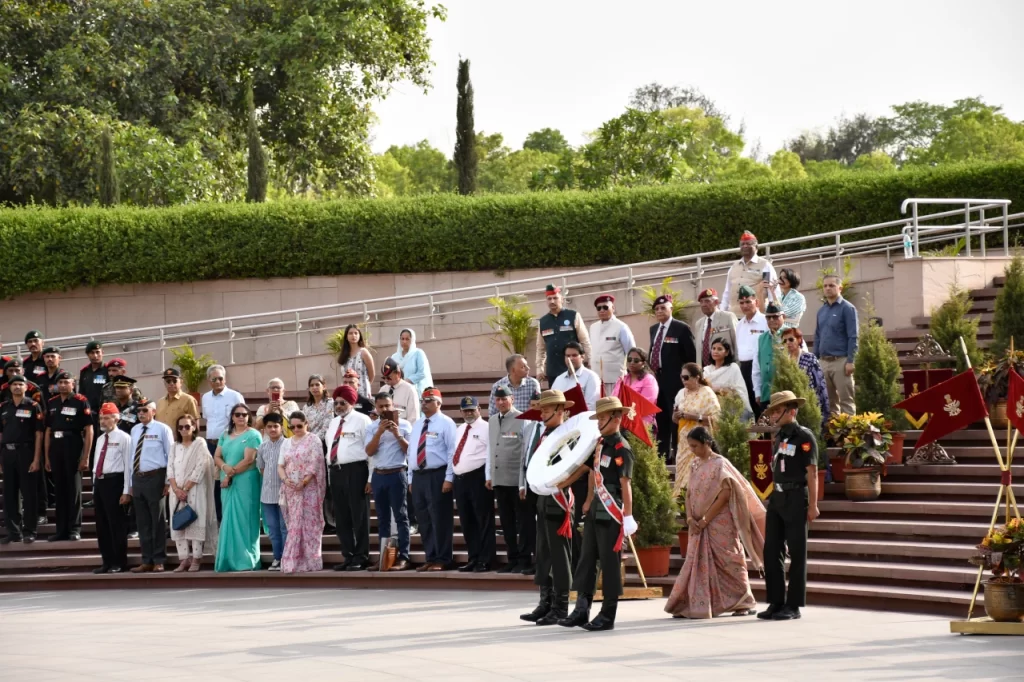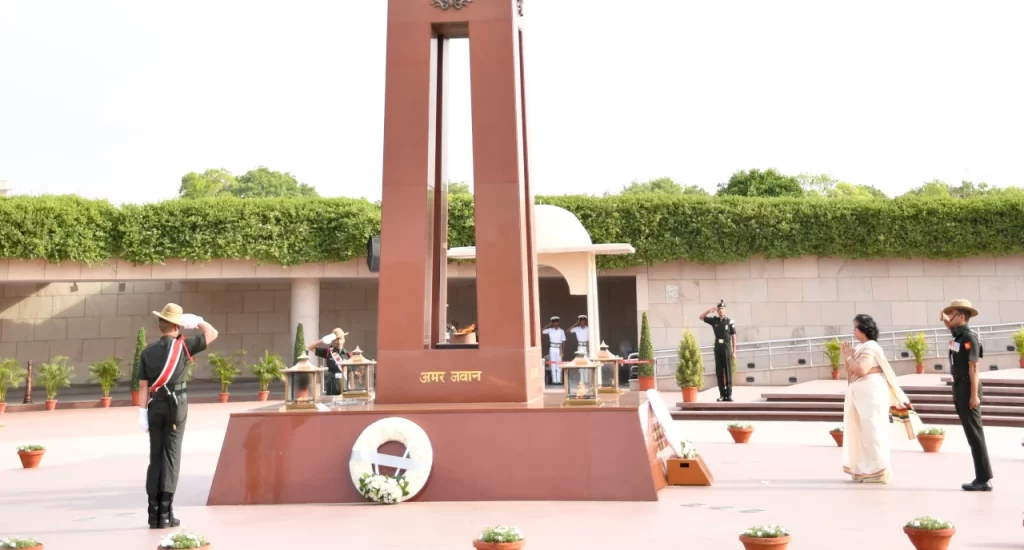Operation Pawan remains a pivotal chapter in the annals of Indian military history, yet it is one that is often overshadowed by other conflicts. This operation, which took place in Sri Lanka from 1987 to 1990, saw the Indian Peace Keeping Force (IPKF) deployed under the Indo-Sri Lanka Peace Accord. Despite the challenging conditions and the complex political landscape they navigated, the valor and sacrifice of the Indian soldiers were profound. Their commitment was part of a broader narrative of dedication that the armed forces have consistently demonstrated in their duty towards the nation. However, the recognition of these brave soldiers has been minimal, leading to a continuing dialogue among veterans and military historians about the importance of properly acknowledging and commemorating their sacrifices.
Life is a cycle of birth and death, and in between is what we do for ourselves and our families, and some who are fortunate to join the armed forces and serve their country. Most of the time, the servicemen give their all to their country’s safety and the honor of its citizens. Rarely do they go to a foreign land for geo-political and strategic purposes to negate threats that can come to their doorstep.
Operation Pawan was one such operation post-independence, where a joint operation was undertaken as per the tenets of the Indo-Sri Lanka peace accord, signed by the late Prime Minister Rajeev Gandhi and the Late President of Sri Lanka Jayawardene.

Till this account was signed, the military leaders were furiously working on an attack plan that included all the modes of insertion: by sea through submarines, by air to land, and by capture of an airfield, as well as building an aerobridge for subsequent operations. The Mechanised Infantry had been equipped with the ICV BMP II, which was capable of floatation and was to be used in an amphibious assault.
The earmarked troops were briefed and rehearsed on the various contingencies that could occur in operations against the Sri Lanka defense forces and in support of the LTTE to achieve their independent homeland.
When signed, the Sri Lanka Peace Accord turned everything upside down, and now the troops on the edge of an assault operation had to reorient to Peacekeeping Operations. The IPKF was flown in within hours of signing the peace accord. Battalion support weapons, ammunition, armor, and artillery were held back on the mainland.
The LTTE was shoehorned into accepting the Peace Accord by the Indian Government, to which the LTTE leadership had decided to renege upon their commitment and were silently preparing for a showdown with the IPKF.
The IPKF, in its exuberance and blind faith in a terrorist organisation-imposed restrictions of movement towards Jaffna. The LTTE cadres were wined and dined, and a pretense of bonhomie was allowed to develop while they closely watched and observed the Indian Peace Keeping Force.
The events took a turn with the apprehension of the LTTE cadres by the Sri Lanka Navy on the high seas and the abrogation of the Peace Accord on 10th October 1987, forcing the IPKF to now Peace Enforcement Operations.

While the subsequent operations and reduction of the fighting capability of the LTTE have been much publicized, what needs to be focused upon is the merit of remembering those who gave their all in the highest traditions of the Indian Army.
The National War Memorial is a memorial to honor those who, post-independence, have laid down their life, keeping the traditions and honor of their units/regiments. At the cutting edge, the combatant is giving his all for his buddy who is fighting alongside him and to ensure that if the enemy is killed and only in extreme cases when the call of duty beckons beyond the safety and security, servicemen do not hesitate to give their life.
So the question is, what is the occasion or what is the reason for the commemoration of those who laid down their lives and left their widows and children to live a lifetime of pain and anguish as they see the others around them enjoy their moments?
War Memorials are not for celebrating victories and holding events to gain political mileage but to remember those who, under extreme odds, did not hesitate. Should this be mired in a political debate and be questioned by those who see no merit in such a celebration?
While Op Vijay Kargil War lasted only for three months, Op Pawan in Srilanka lasted three years, and the Liberation of Tamil Tigers Elam (LTTE) was vanquished only in 2009. Around 527 soldiers gallantly laid down their lives, and 1,363 soldiers were wounded in the Kargil war. In Op Pawan in Srilanka, the respective figures were around 1,670 killed in action and 3,000 wounded.
As can be noticed, the casualty figures from the operation in Sri Lanka are three times that of the Kargil War. However, only one Param Vir Chakra was awarded about battles in Sri Lanka against an enemy known to be the wiliest, suicide-committed, fighting in its territory with the full support of the population.
However, not even a single wreath has been placed, or a tricolor waved in acknowledgment of those who lost their lives fighting in a foreign land on the orders of the Indian government. It is a sad reality that India does not celebrate or commemorate the battles of Op Pawan.
Unlike the nation, the veterans are not prepared to forget their comrades. They sought and received permission from the government to pay tributes to their fellow soldiers at the National War Memorial. However, when the approvals came in 2021, they came with a set of riders that there would only be a silent ceremony, no serving officer in uniform to be present, and a wreath to be laid only by a senior most veteran officer present.
At the NWM cenotaph, visitors’ eyes are involuntarily drawn to the words emblazoned in gold: “Shaheedon ki chitaon par judenge har baras meley, Watan par mitne walon ka yahi baki nishan hoga.”
But for the Indian soldiers who, during ‘Operation Pawan,’ sacrificed their all for the nation, there’s no such recognition. Their souls live in limbo, honored in a foreign land but forgotten by their homeland.
But it’s reason enough for us to step up and remember our own and their supreme sacrifice. Even the apex military hierarchy’s faulty reasoning of looking at ‘Operation Pawan’ as a minor military operation to deny the rightful annual remembrance doesn’t deter us. It’s simply callous to term the supreme sacrifice made by 1171 Indian soldiers as ‘minor’!
The state may dither in its covenant with its soldiers, enshrined in gold at the Cenotaph at the NWM, but how can we, who fought alongside these Bravehearts, dither?
The privilege of standing shoulder to shoulder with three of our Veer Naris, Mrs. Shobha Madhavan, 65 Armd Regt, Mrs. Neelam Kumari, 10 Para (Cdo), and Mrs. Savita Rani, 5 Raj RIF, at the NWM gives us strength to carry on with our lonesome march.
We also have a positive outlook towards the future. The presence this time of 50-odd uniformed All Ranks from the RAJ RIF REGT and a similar number of NCC cadets tells us that change is inevitable. But what gives us heart is the presence of the IPKF’ Next Gen’—there were four this time—who we are sanguine shall carry forward our tradition when we shall be no more Tomorrow.
We thank the Adjutant General and his team for granting permission to hold the Wreath-Laying Ceremony at the NWM and 1/5 GR, the current custodians of the NWM, for flawlessly executing the ceremony.
Conclusion
The story of Operation Pawan and its soldiers is more than a historical footnote; it is a testament to the enduring spirit of the Indian armed forces. The limited official recognition and commemoration of those who served and sacrificed in this operation is a poignant reminder of the complexities involved in military engagements and the politics that often surround them. However, the commitment of veterans and the military community to honor their fallen comrades shows a path forward for remembrance. It underscores the need for a collective memory that values and respects the sacrifices made by soldiers, ensuring that they are not forgotten but are celebrated as an integral part of our national heritage. This respect and recognition are crucial, not just for the sake of history, but for the moral obligation we hold towards those who have given their all for the safety and honor of our country.
